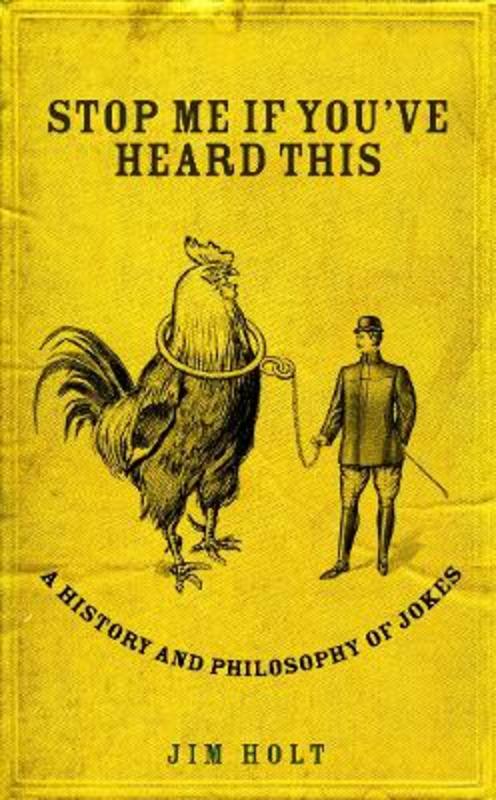
Stop Me If You've Heard This - A History and Philosophy of Jokes
Profile Books, 2008. Dustjacket spine faded, otherwise good secondhand condition.
A priest, a rabbi and a minister walk into bar. 'What is this', the barman says, 'some kind of joke?' As he laughs his way though the history of jokes, Jim Holt discovers that most of those we trade are actually hundreds of years old: Palamedes, a Greek hero of the Trojan War, is credited with inventing the joke (before being stoned to death) and it was Philip the Great of Macedon in the 4th century BC who paid to have the first joke book compiled. In describing how they've changed over time (one of the funniest things to ancient audiences was lettuce), we come across not only the oldest but the rudest, the shortest and, allegedly, the funniest. And why do we laugh at these jokes? Holt explores the various theories: for Freud, laughter liberates us from forbidden thoughts and feelings. For Plato, we feel a sudden glory when see, say, someone tripping on a banana-skin. For Kant, we laugh when the logical dissolves into the absurd. Holt also discusses a new way of combining these theories (and looks at those who don't laugh at all - Isaac Newton laughed only once in his life, and Jesus might have wept, but did he laugh?). As for where do jokes come from, one theory is that they're made up by prisoners who have a lot of spare time, and a captive audience......
